Original title: "Camp Network airdrop reaches new heights: why did it draw criticism from the entire network?"
Original author: Asher, Odaily Planet Daily
Camp Network is the project that has received the most backlash and criticism from the community among the recent "money-making" projects.
Last night, Camp Network, an L1 project that raised $30 million and aims to solve the AI copyright chaos, officially launched its mainnet, opening token trading and airdrop collection.
Initially, many "money-pullers" (those who "pull money" or "money-pullers") diligently engaged in various ecosystem partnerships on the testnet to "accumulate matches," believing that "a few months of hard testing would at least earn them a meal." However, the situation turned sour: almost everyone was "pull money" instead.
Next, Odaily Planet Daily will explain why Camp Network has become the target of criticism in the "money-making" community since the airdrop query was launched.
Most people do not have the airdrop qualification, and those who are qualified need to spend $10 to register for the airdrop
Complaint 1: A large number of early users have no time to invest
On August 22nd, Camp Network announced the launch of an airdrop query. According to community feedback, unless they had previously minted NFTs or invited a sufficient number of friends, the vast majority of early users, despite diligently completing numerous tasks on the Camp Network testnet, were not eligible for airdrops.
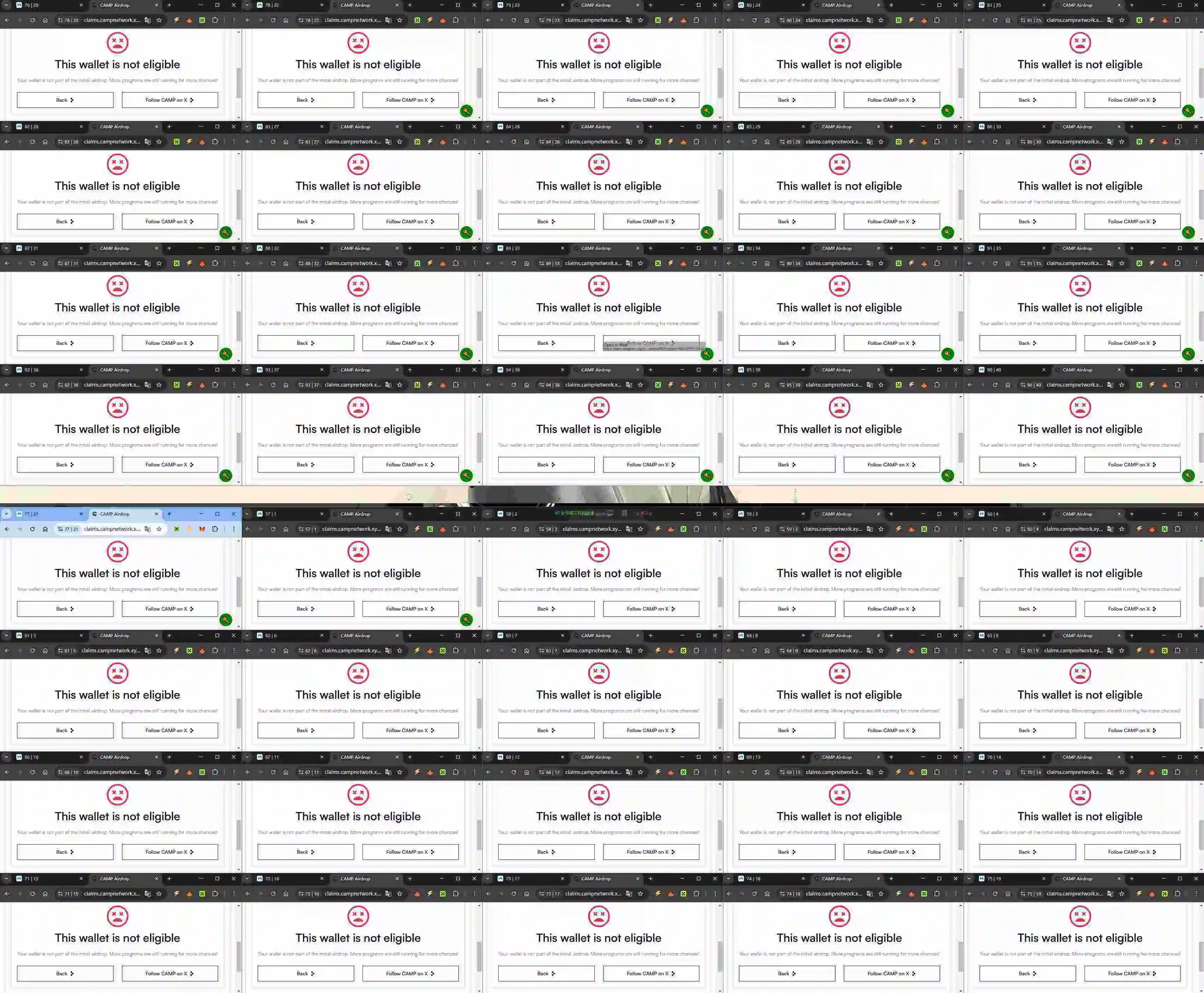
A certain "money-grabbing party" interacted with Camp Network test network and found that multiple accounts were not eligible for airdrops.
According to community statistics, the total number of wallets participating in the Camp Network testnet interaction is as high as 6 million, of which there are approximately 280,000 Summit Series active wallets, but only 40,000 addresses are eligible for airdrops.

Community statistics on Camp Network testnet addresses
Complaint point 2: Users with free investment qualifications need to spend $10 to register an account
A large number of "fleecing" investors were disgruntled by being "rejected," sparking widespread community outrage. Unexpectedly, even the few users who qualified for the airdrop were required to pay an additional fee—a registration fee of 0.0025 ETH (approximately $10 USD)—before claiming their stake. This made Camp Network the first major L1 airdrop project to require users to pay a fee to participate.
However, as negative sentiment in the community quickly fermented, Camp Network urgently announced the cancellation of the airdrop registration fee that afternoon and promised a full refund to users who had paid 0.0025 ETH.
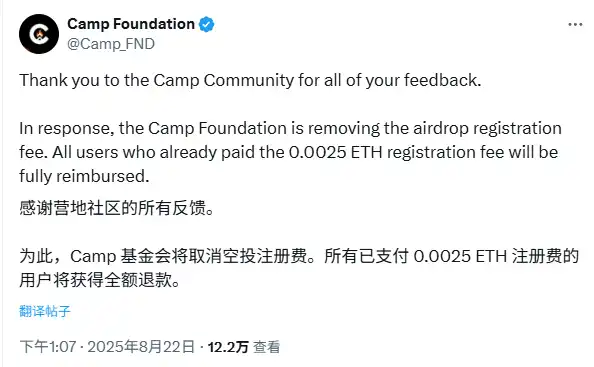
Under pressure from the community, the official airdrop registration fee was cancelled
Complaint point three: Strict KYC requirements
Even if you manage to qualify for the airdrop, you'll likely be unable to claim it due to the rigorous KYC verification process. According to user feedback from qualified airdrop users, the more pressing issue than the $10 registration fee is the rigorous KYC verification process, which requires a webcam, and the fact that KYC providers block VPNs and certain countries, excluding a significant number of international users.
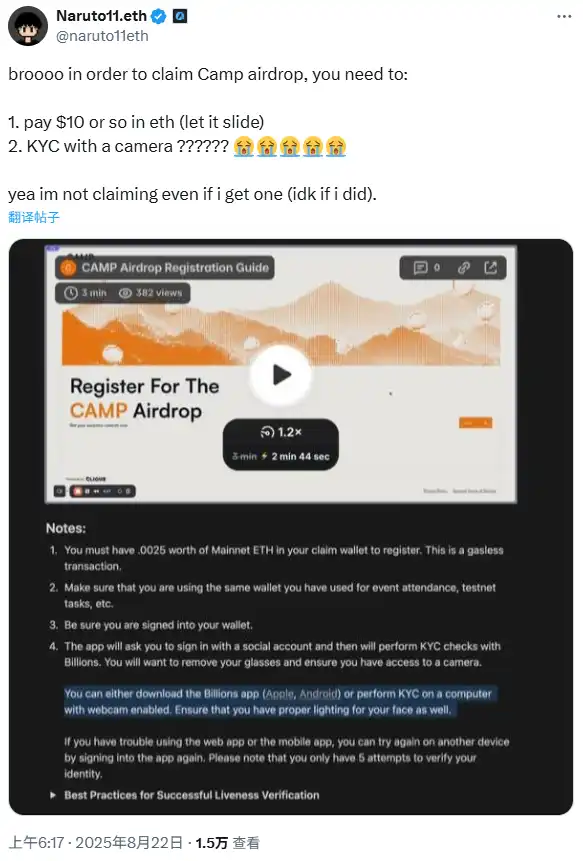
Community members complain about the strict KYC certification
Only 20% of TGE is unlocked, and you need to buy coins and pay gas fees on the exchange before you can claim it.
Even more discontent with the community than the exclusion of a large number of early adopters was the requirement to purchase tokens on an exchange before paying for gas and claiming the airdrop. As shown in the image below, an early adopter received 100 CAMP tokens, but only unlocked 20% at the opening, or 20 CAMP tokens. Currently priced at $0.09 per token, this is worth less than $2.
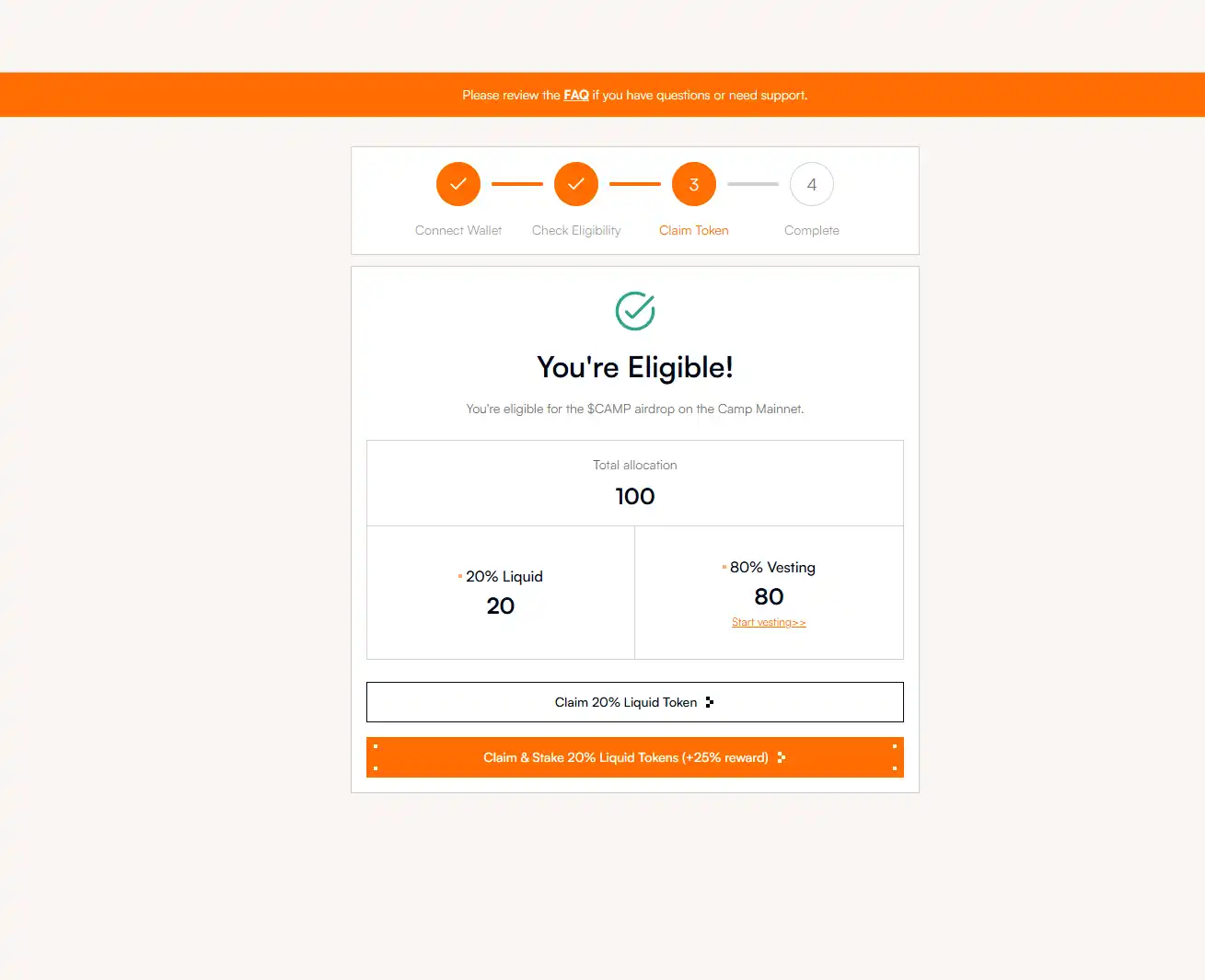
Receive CAMP token airdrop interface
To receive tokens, you need to buy tokens from the exchange to pay for the airdrop gas fee, but the exchange cannot withdraw tokens yet.
What’s even more outrageous is that to claim the airdrop, you first need to go to the exchange to buy CAMP tokens to pay for the Camp Network mainnet gas fee, but some exchanges that have listed CAMP still cannot withdraw coins (the picture below shows the Bitget exchange).
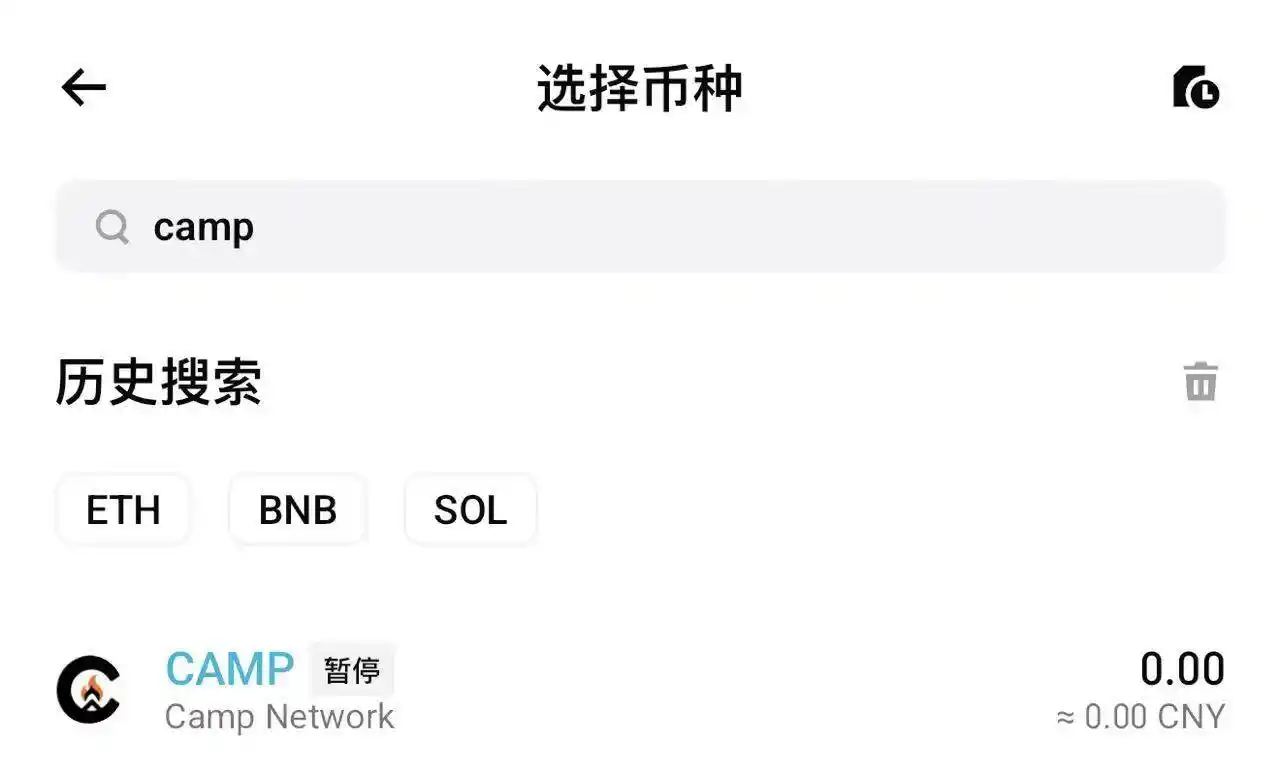
The Bitget trading platform is still unable to withdraw CAMP
It's clear that the Camp Network project has implemented numerous restrictions in its airdrop design, preventing most early adopters from successfully claiming their tokens. Such a highly controlled token mechanism inherently carries significant uncertainty and risk. Whether choosing to go long or short, consider carefully before acting, and avoid impulsive moves based on momentary emotions or short-term market conditions.







